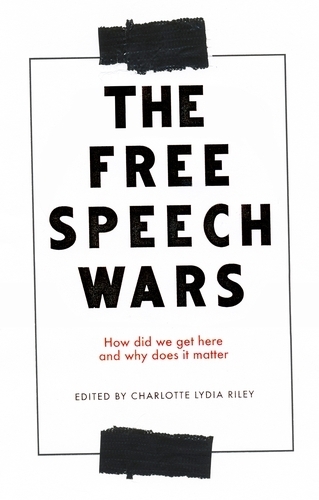
The Free Speech Wars: How Did We Get Here and Why Does it Matter
(Paperback)
Available Formats
Publishing Details
The Free Speech Wars: How Did We Get Here and Why Does it Matter
By (Author) Charlotte Lydia Riley
Manchester University Press
Manchester University Press
20th November 2020
United Kingdom
Classifications
Tertiary Education
Non Fiction
Media studies: journalism
Media studies
News media and journalism
Society and culture: general
323.443
Physical Properties
Paperback
296
Width 129mm, Height 198mm, Spine 16mm
295g
Description
This book is a timely intervention into the apparently growing culture wars around free speech as a political and social issue. These debates take form on university campuses, social media, mainstream press and elsewhere. The book will focus on the weaponisation of the concept in these areas, as well as providing a strong historical and comparative context. -- .
Reviews
'If youd like to understand what on earth is really going on when politicians and commentators these days pontificate about censorship, cancel culture, no-platforming, safe spaces and the rest, its an excellent place to start.'
The Guardian
'This collection of essays by an eclectic group of mostly European scholars is not a legalistic examination of free speech court cases and legislation. Instead, it examines free speech issues from philosophical, historical, and sociological perspectives. There are no references to legal scholars but rather to such thinkers as Jrgen Habermas, Socrates, and Voltaire, among others. The book is neatly organized into four sections dealing with threats to free speech, the use of free speech as a weapon, the role of universities in the free speech debate, and the internet as the Wild West of free speech. Readers will find that many of the essays can serve as conversation starters for contemporary topics, such as free speechs relationship to racism, trigger warnings, and marginalized groups. A recurring theme across many essays is the use of free speech by the powerful as a tool of oppression. This book provides useful criticism through a European perspective unfamiliar to most American students.
Summing Up: Recommended. Advanced undergraduates and graduate students.'
D. Caristi, Ball State University, CHOICE 60.1 (September 2022)
Author Bio
Charlotte Lydia Riley is a Lecturer in twentieth-century British history at the University of Southampton
